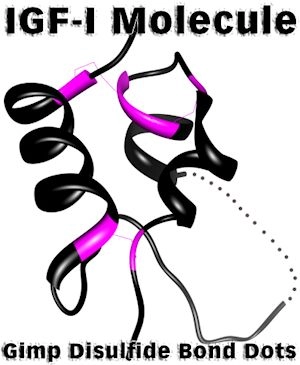Introduction
Hypopituitarism, a condition characterized by diminished secretion of one or more of the eight hormones normally produced by the pituitary gland, has been increasingly recognized as a potential contributor to the pathogenesis of liver cirrhosis. This article delves into the intricate relationship between hypopituitarism and liver cirrhosis, focusing specifically on the impact on hepatic function in American males.
Understanding Hypopituitarism and Liver Cirrhosis
Hypopituitarism can arise from various etiologies, including tumors, traumatic brain injury, and autoimmune diseases. The resultant hormonal deficiencies can manifest in a myriad of systemic effects, one of which may be the exacerbation of liver disease. Liver cirrhosis, a late stage of scarring (fibrosis) of the liver, is often associated with chronic liver diseases such as hepatitis and alcoholism. In American males, where lifestyle factors like alcohol consumption can significantly contribute to liver disease, understanding the role of hypopituitarism becomes crucial.
The Impact of Hypopituitarism on Hepatic Function
The liver, a vital organ responsible for detoxification, protein synthesis, and hormone production, is highly sensitive to hormonal imbalances. Hypopituitarism can lead to deficiencies in hormones such as growth hormone (GH), thyroid-stimulating hormone (TSH), and adrenocorticotropic hormone (ACTH), all of which play roles in maintaining hepatic homeostasis. For instance, GH deficiency has been linked to altered lipid metabolism and increased fat accumulation in the liver, potentially accelerating the progression of cirrhosis.
Clinical Observations and Studies
Recent studies have begun to elucidate the clinical implications of hypopituitarism on liver cirrhosis. A study published in the *Journal of Clinical Endocrinology & Metabolism* found that patients with hypopituitarism had a higher prevalence of liver steatosis and fibrosis compared to controls. Furthermore, the study suggested that hypopituitarism could exacerbate the severity of liver disease in patients with pre-existing cirrhosis, particularly in American males who may have additional risk factors such as obesity and alcohol abuse.
Mechanisms of Interaction
The mechanisms through which hypopituitarism impacts liver function are multifaceted. One proposed pathway involves the disruption of the hypothalamic-pituitary-adrenal (HPA) axis, leading to cortisol deficiency. Cortisol, a glucocorticoid, is essential for maintaining liver glycogen stores and regulating inflammation. Its deficiency can impair the liver's ability to respond to stress and infection, thereby worsening cirrhosis.
Additionally, the lack of GH and insulin-like growth factor-1 (IGF-1) can lead to insulin resistance and metabolic syndrome, further complicating liver function. IGF-1 is known to have protective effects on the liver, and its deficiency can contribute to the progression of fibrosis.
Management and Treatment Strategies
Managing hypopituitarism in the context of liver cirrhosis requires a multifaceted approach. Hormone replacement therapy (HRT) is a cornerstone of treatment, aimed at restoring hormonal balance and mitigating the impact on hepatic function. For American males, lifestyle modifications such as reducing alcohol consumption and managing obesity are also critical.
In cases where liver function is severely compromised, more aggressive interventions such as liver transplantation may be considered. However, the presence of hypopituitarism can complicate post-transplant management, necessitating careful monitoring and adjustment of HRT.
Conclusion
The interplay between hypopituitarism and liver cirrhosis presents a complex clinical challenge, particularly in American males where lifestyle factors can exacerbate liver disease. Understanding the impact of hypopituitarism on hepatic function is essential for developing effective management strategies. Through a combination of hormone replacement therapy, lifestyle modifications, and, in severe cases, liver transplantation, it is possible to mitigate the effects of hypopituitarism on liver cirrhosis and improve patient outcomes. Further research is needed to fully elucidate the mechanisms of this interaction and to optimize treatment protocols for this vulnerable population.
Contact Us For A Fast And Professional Response

- Unraveling the Link Between Hypopituitarism and Cardiovascular Health in American Males [Last Updated On: March 3rd, 2025] [Originally Added On: March 3rd, 2025]
- Hypopituitarism's Impact on American Men: Symptoms, Challenges, and Coping Strategies [Last Updated On: March 10th, 2025] [Originally Added On: March 10th, 2025]
- Unraveling the Link Between Hypopituitarism and Metabolic Syndrome in American Males [Last Updated On: March 15th, 2025] [Originally Added On: March 15th, 2025]
- Hypopituitarism and Cardiovascular Health: Unveiling the Hidden Risks in American Males [Last Updated On: March 16th, 2025] [Originally Added On: March 16th, 2025]
- Unveiling the Connection: Hypopituitarism and Uterine Fibroids in American Males [Last Updated On: March 16th, 2025] [Originally Added On: March 16th, 2025]
- Understanding Hypopituitarism and Its Impact on Male Reproductive Health [Last Updated On: March 16th, 2025] [Originally Added On: March 16th, 2025]
- Unraveling the Hormonal Link: Hypopituitarism and Breast Cancer in American Males [Last Updated On: March 16th, 2025] [Originally Added On: March 16th, 2025]
- Hypopituitarism's Impact on Cognitive Function in American Males: Diagnosis and Management [Last Updated On: March 17th, 2025] [Originally Added On: March 17th, 2025]
- Hypopituitarism and Autoimmune Disorders: Implications for American Males [Last Updated On: March 18th, 2025] [Originally Added On: March 18th, 2025]
- Hypopituitarism in American Males: Impacts on Sleep and Hormonal Balance [Last Updated On: March 18th, 2025] [Originally Added On: March 18th, 2025]
- Hypopituitarism in American Males: Impact on Skin Health and Management Strategies [Last Updated On: March 18th, 2025] [Originally Added On: March 18th, 2025]
- Hypopituitarism and Obesity in American Males: Hormonal Impacts and Management Strategies [Last Updated On: March 18th, 2025] [Originally Added On: March 18th, 2025]
- Hypopituitarism in American Males: Pituitary Tumors and Surgical Management Insights [Last Updated On: March 18th, 2025] [Originally Added On: March 18th, 2025]
- Hypopituitarism and Anemia in American Males: The Erythropoietin Connection [Last Updated On: March 19th, 2025] [Originally Added On: March 19th, 2025]
- Multidisciplinary Approach to Managing Hypopituitarism in American Males [Last Updated On: March 19th, 2025] [Originally Added On: March 19th, 2025]
- Hypopituitarism in Aging American Males: Symptoms, Impact, and Management Strategies [Last Updated On: March 20th, 2025] [Originally Added On: March 20th, 2025]
- Hypopituitarism in American Males: Cancer Risks and Management Strategies [Last Updated On: March 21st, 2025] [Originally Added On: March 21st, 2025]
- Hypopituitarism and Male Pattern Baldness: Hormonal Links and Psychological Impacts [Last Updated On: March 21st, 2025] [Originally Added On: March 21st, 2025]
- Hypopituitarism's Impact on Joint Health in American Males: Hormones and Management [Last Updated On: March 21st, 2025] [Originally Added On: March 21st, 2025]
- Hypopituitarism and Hearing Loss: Implications for American Males [Last Updated On: March 22nd, 2025] [Originally Added On: March 22nd, 2025]
- Hypopituitarism in American Males: Impacts on Mental Health and Management Strategies [Last Updated On: March 22nd, 2025] [Originally Added On: March 22nd, 2025]
- Hypopituitarism's Impact on Asthma in American Males: Diagnosis and Management Strategies [Last Updated On: March 22nd, 2025] [Originally Added On: March 22nd, 2025]
- Hypopituitarism's Impact on Immune Function in American Males: Challenges and Management [Last Updated On: March 22nd, 2025] [Originally Added On: March 22nd, 2025]
- Hypopituitarism and Allergies: Exploring Links in American Males [Last Updated On: March 22nd, 2025] [Originally Added On: March 22nd, 2025]
- Hypopituitarism and Seizure Disorders: Neurological Links in American Males [Last Updated On: March 23rd, 2025] [Originally Added On: March 23rd, 2025]
- Hypopituitarism's Impact on Kidney Health: Monitoring and Management Strategies [Last Updated On: March 23rd, 2025] [Originally Added On: March 23rd, 2025]
- Hypopituitarism's Impact on Muscle Strength in American Males: Hormonal and Therapeutic Insights [Last Updated On: March 23rd, 2025] [Originally Added On: March 23rd, 2025]
- Hypopituitarism and CFS Overlap: Challenges and Treatment in American Men [Last Updated On: March 24th, 2025] [Originally Added On: March 24th, 2025]
- Hypopituitarism's Impact on Gastrointestinal Health in American Males: Symptoms and Management [Last Updated On: March 24th, 2025] [Originally Added On: March 24th, 2025]
- Hypopituitarism's Impact on Kidney Health: Essential Monitoring for American Males [Last Updated On: March 24th, 2025] [Originally Added On: March 24th, 2025]
- Hypopituitarism's Impact on Liver Health in American Males: Management and Treatment [Last Updated On: March 25th, 2025] [Originally Added On: March 25th, 2025]
- Hypopituitarism in American Males: Impact on Visual Health and Management Strategies [Last Updated On: March 25th, 2025] [Originally Added On: March 25th, 2025]
- Hypopituitarism and Migraines: Hormonal Links in American Males [Last Updated On: March 25th, 2025] [Originally Added On: March 25th, 2025]
- Hypopituitarism and Stroke Risk in American Males: Monitoring and Management Strategies [Last Updated On: March 25th, 2025] [Originally Added On: March 25th, 2025]
- Autoimmune Link Between Hypopituitarism and RA in American Males: Impacts and Management [Last Updated On: March 25th, 2025] [Originally Added On: March 25th, 2025]
- Hypopituitarism's Impact on Pancreatic Health in American Males: Risks and Management [Last Updated On: March 26th, 2025] [Originally Added On: March 26th, 2025]
- Hypopituitarism's Impact on Parkinson's Disease Progression in American Males [Last Updated On: March 26th, 2025] [Originally Added On: March 26th, 2025]
- Hypopituitarism and IBD Link in American Males: Gastrointestinal and Hormonal Insights [Last Updated On: March 26th, 2025] [Originally Added On: March 26th, 2025]
- Hypopituitarism and Gallbladder Disease: Exploring Links in American Men [Last Updated On: March 26th, 2025] [Originally Added On: March 26th, 2025]
- Hypopituitarism and Pituitary Cancer: Early Detection and Management in American Males [Last Updated On: March 26th, 2025] [Originally Added On: March 26th, 2025]
- Hypopituitarism and Fibromyalgia: Shared Symptoms and Management in American Males [Last Updated On: March 27th, 2025] [Originally Added On: March 27th, 2025]
- Exploring the Link Between Hypopituitarism and Alzheimer's in American Males [Last Updated On: March 27th, 2025] [Originally Added On: March 27th, 2025]
- Hypopituitarism and Dyslipidemia: Impacts and Management in American Males [Last Updated On: March 27th, 2025] [Originally Added On: March 27th, 2025]
- Hypopituitarism, Celiac Disease, and Autoimmune Links in American Males: A Comprehensive Overview [Last Updated On: March 27th, 2025] [Originally Added On: March 27th, 2025]
- Hypopituitarism's Impact on Glucose Metabolism in American Males with Diabetes Mellitus [Last Updated On: March 27th, 2025] [Originally Added On: March 27th, 2025]
- Exploring Hypopituitarism and MS Link in American Males: Diagnosis and Treatment Insights [Last Updated On: March 27th, 2025] [Originally Added On: March 27th, 2025]
- Hypopituitarism's Impact on Osteoarthritis in American Males: Hormonal and Joint Health [Last Updated On: March 27th, 2025] [Originally Added On: March 27th, 2025]
- Hypopituitarism's Impact on Uric Acid and Gout in American Males: A Comprehensive Analysis [Last Updated On: March 27th, 2025] [Originally Added On: March 27th, 2025]
- Hypopituitarism and Hypertension: Impact on Blood Pressure in American Males [Last Updated On: March 27th, 2025] [Originally Added On: March 27th, 2025]
- Hypopituitarism in American Males: Cardiovascular Risks and Management Strategies [Last Updated On: March 28th, 2025] [Originally Added On: March 28th, 2025]
- Hypopituitarism and Sjögren's Syndrome: Impact on Exocrine Glands in American Males [Last Updated On: March 28th, 2025] [Originally Added On: March 28th, 2025]
- Hypopituitarism and Adrenal Cancer: Endocrine Links and Management in American Males [Last Updated On: March 28th, 2025] [Originally Added On: March 28th, 2025]
- Hypopituitarism and Lupus Link in American Males: Clinical Insights and Management [Last Updated On: March 28th, 2025] [Originally Added On: March 28th, 2025]
- Hypopituitarism and Breast Cancer Link in American Males: Hormonal Insights [Last Updated On: March 28th, 2025] [Originally Added On: March 28th, 2025]
- Hypopituitarism and Prostate Cancer: Understanding the Link and Managing Risks in American Males [Last Updated On: March 29th, 2025] [Originally Added On: March 29th, 2025]
- Hypopituitarism and Thyroid Cancer Link in American Males: Hormonal Imbalances Explored [Last Updated On: March 30th, 2025] [Originally Added On: March 30th, 2025]

















